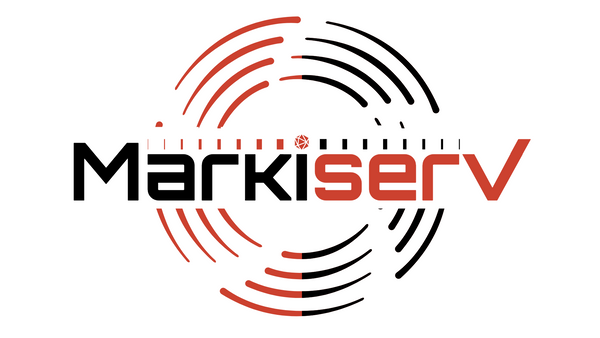
What is SEO?
Search Engine Optimization (SEO) is the practice of optimizing your website to improve its visibility and ranking on search engine results pages (SERPs). The goal of SEO is to attract more organic (non-paid) traffic to your site by making it more appealing to search engines like Google, Bing, and Yahoo.
Why is SEO Important?
SEO is crucial for businesses of all sizes because it helps you reach your target audience more effectively. Here are some key benefits of SEO:
- Increased Visibility: Higher rankings on SERPs mean more visibility for your website.
- Credibility and Trust: Websites that rank higher are often perceived as more credible and trustworthy.
- Cost-Effective: Unlike paid advertising, organic traffic is free, making SEO a cost-effective marketing strategy.
- Better User Experience: SEO involves optimizing your site’s structure and content, which can lead to a better user experience.
Key Components of SEO
-
1. Keyword Research
Keyword research is the process of identifying the words and phrases that your target audience uses to search for products or services similar to yours. Tools like Google Keyword Planner, Ahrefs, and SEMrush can help you find relevant keywords with high search volume and low competition.
-
2. On-Page SEO
On-page SEO involves optimizing individual pages on your website to rank higher and earn more relevant traffic. Key elements of on-page SEO include:
- Title Tags: The title of your page should include your primary keyword and be compelling enough to attract clicks.
- Meta Descriptions: A brief summary of your page content that appears under the title tag in SERPs. It should be informative and include your primary keyword.
- Header Tags (H1, H2, H3): Use header tags to structure your content and make it easier for search engines to understand.
- Content Optimization: Ensure your content is high-quality, relevant, and includes your target keywords naturally.
- Internal Linking: Link to other relevant pages on your site to improve navigation and help search engines crawl your site more effectively.
-
3. Off-Page SEO
Off-page SEO refers to actions taken outside of your website to improve its ranking. This primarily involves building high-quality backlinks from reputable websites. Techniques include:
- Guest Blogging: Write articles for other websites in your industry and include links back to your site.
- Social Media Marketing: Promote your content on social media platforms to increase visibility and attract backlinks.
- Influencer Outreach: Collaborate with influencers in your industry to share your content and build backlinks.
-
4. Technical SEO
Technical SEO involves optimizing your website’s infrastructure to make it easier for search engines to crawl and index your site. Key aspects include:
- Site Speed: Ensure your website loads quickly to improve user experience and reduce bounce rates.
- Mobile-Friendliness: Optimize your site for mobile devices, as more users are accessing the web via smartphones and tablets.
- XML Sitemaps: Create and submit an XML sitemap to help search engines understand your site’s structure and index it more effectively.
- Robots.txt: Use the robots.txt file to control which pages search engines can crawl and index.
Latest SEO Trends for 2024
1. AI and Machine Learning
AI and machine learning are playing an increasingly important role in SEO. Google’s RankBrain algorithm, for example, uses machine learning to understand user intent and deliver more relevant search results. To optimize for AI, focus on creating high-quality, user-centric content that answers your audience’s questions.
2. Voice Search Optimization
With the rise of voice-activated devices like Amazon Echo and Google Home, optimizing for voice search is becoming essential. Voice searches tend to be longer and more conversational, so target long-tail keywords and natural language phrases.
3. Mobile-First Indexing
Google now uses mobile-first indexing, meaning it primarily uses the mobile version of your site for ranking and indexing. Ensure your site is mobile-friendly by using responsive design, optimizing images, and improving site speed.
4. E-A-T (Expertise, Authoritativeness, Trustworthiness)
Google’s E-A-T guidelines emphasize the importance of creating content that demonstrates expertise, authoritativeness, and trustworthiness. To improve your E-A-T, focus on:
- Author Credentials: Highlight the credentials and expertise of your content authors.
- Citations and References: Use credible sources to back up your claims and link to authoritative websites.
- User Reviews and Testimonials: Showcase positive reviews and testimonials to build trust with your audience.
Best Practices for SEO in 2024
1. Create High-Quality Content
Content is still king in SEO. Focus on creating valuable, informative, and engaging content that addresses your audience’s needs and questions. Use a mix of text, images, videos, and infographics to keep your content diverse and engaging.
2. Optimize for User Experience
A positive user experience is crucial for SEO. Ensure your site is easy to navigate, loads quickly, and is free of technical issues. Use clear calls-to-action (CTAs) to guide users through your site and encourage conversions.
3. Build a Strong Backlink Profile
Backlinks from reputable websites signal to search engines that your site is trustworthy and authoritative. Focus on building high-quality backlinks through guest blogging, influencer outreach, and content promotion.
4. Monitor and Analyze Your SEO Performance
Use tools like Google Analytics and Google Search Console to track your SEO performance. Monitor key metrics such as organic traffic, bounce rate, and conversion rate to identify areas for improvement and adjust your strategy accordingly.

Conclusion
SEO is a dynamic and ever-evolving field, but by staying informed about the latest trends and best practices, you can improve your website’s visibility and attract more organic traffic. Whether you’re a beginner or an experienced marketer, implementing these SEO strategies will help you achieve your business goals and stay ahead of the competition. If you would like to hire us in helping with some of your SEO content we would be more than happy to dive on in! Checkout the link below to learn more.
Resources to Learn More:
Still curious? Checkout these helpful links below that can help you really deep dive into the SEO topic. After reading through this page, and using these resources below, you should be in good shape in building your understanding of search engine optimization:
- Search Engine Optimization (SEO) Starter Guide - Google Developers - This guide from Google covers the basics of SEO and how to improve your site's visibility in search engine results.
- The Ultimate Guide to SEO in 2024 - HubSpot Blog - A comprehensive guide that covers various aspects of SEO, including content marketing and link building.
- 10 SEO Best Practices & Strategies for Success in 2024 - Semrush - This article provides 10 best practices for improving your website's organic rankings and traffic.
- Free SEO Resources for Beginners & Seasoned Pros - SEO.com - A collection of free SEO resources for both beginners and experienced SEO professionals.
- 10 Free SEO Resources (2024) - Style Factory - A list of essential guides and tools to help improve your understanding of SEO and enhance your site's visibility.
